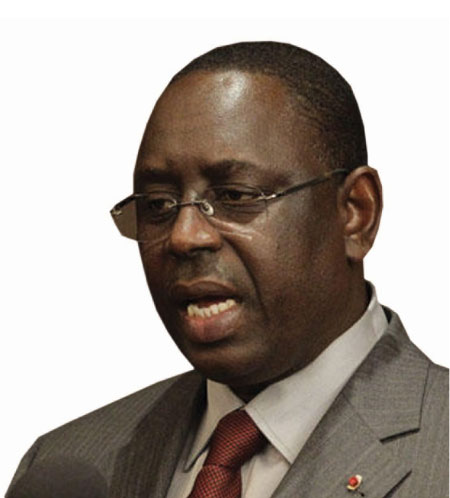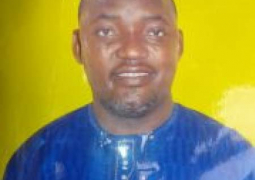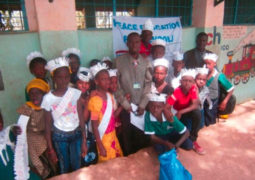
It was one of several measures European and African leaders agreed to reduce the flow of people into Europe.
The leaders said their aim was to “address the root causes of migration”.
The Europe-Africa meeting was planned after around 800 migrants died when their boat sank off Libya in April.
Senegal’s President Macky Sall, who currently heads the West African regional group Ecowas, told journalists on the sidelines of the summit that the money pledged was “not enough for the whole of Africa”.
Later, at the closing press conference, he said he was pleased with the trust fund, but said he would like to see it “more generously financed”.
Niger’s President Mahamadou Issoufou echoed the Senegalese president’s sentiments and added that “reform of global governance” was also needed, to make world trade fairer, Reuters news agency reports.
While Somalia’s Prime Minister Omar Abdirashidali Sharmatke told the BBC: “What Africa needs today is not charity, but investment.”
EU Council President Donald Tusk said the summit had agreed “a long list of very concrete actions to be implemented by the end of 2016”.
These include setting up a joint European and African team in Niger to tackle people smuggling and increasing the number of visas available to students and researchers.
“We are under no illusions that we can improve the situation overnight but we are committed to giving people alternatives to risking their lives,” Mr Tusk said.
Image copyright AFP Image caption Thousands of people have drowned this year trying to cross the Mediterranean Sea Image copyright AFP Image caption European and African leaders pledged to work more closely together on the migration issue
The European trust fund is supposed to “foster stability... and to contribute to better migration management”, according to a European Union statement.
It is also aimed at “promoting economic... opportunities, security and development” in the 23 African countries named which, along with Senegal, include Nigeria, Eritrea and Libya.
The money will be spent on:
Economic programmes to create jobs
Supporting services like health and education
Improving migration management “including containing and preventing irregular migration”
Supporting conflict prevention
Media reaction to the plans:
“Financial aid to accept deportation of thousands” declares Algerian daily El-Khabar, before quoting human rights groups warning that Europe was “forcing African countries to play the role of policeman”.
However, Germany’s tabloid Bild asks: “Why is Chancellor Merkel negotiating with Africa’s despots?” in its account of the “tricky Valletta summit”.
Similarly, the Sueddeutsche Zeitung says the EU’s offer of money for fewer refugees from Africa was making critics “accuse the EU of showing its real values by cooperating with unjust regimes”.
In neighbouring France, Le Figaro urges President Francois Hollande to “have the courage” to drastically cut all kinds of aid for migrants. “In the short term, what is he waiting for to close the Calais ‘jungle’... and change the policy against clandestine immigration?”
In Russia, state-controlled Channel One TV describes the summit as “another attempt by Europe to stop the chaos”, noting that “whilst Europe and Africa are bargaining with each other, thousands are embarking on fatal trips in the Mediterranean”.
The $1.9bn fund is in addition to the $20bn the EU already spends on development assistance in Africa every year, Mr Tusk said.
The fund is also supposed to be boosted by contributions by individual member states, but only a small amount had been pledged.
The UN says some 150,000 people from African countries such as Eritrea, Nigeria and Somalia have made the dangerous journey across the Mediterranean.
But this has been dwarfed by the arrival of some 650,000 people - mostly Syrians - via Turkey and Greece.
There have been more than 3,000 deaths as people try to make the crossing.
BBC world affairs reporter Richard Galpin says the crisis has evolved so quickly this year that European leaders have been struggling to keep up and formulate any coherent policies.



